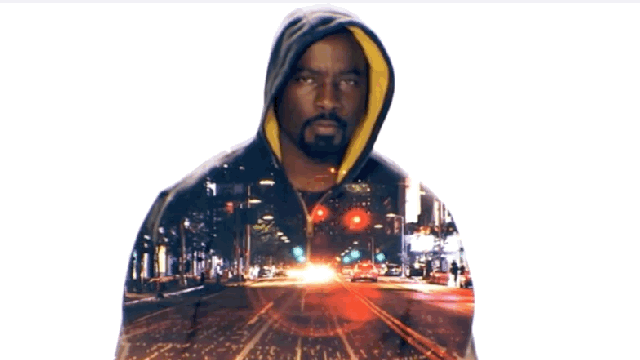The Luke Cage TV show is undeniably black. But that alone isn’t enough to satisfy every black comics fan who’s watching the show.
Three days after the series went up, it seems like everyone’s talking about Luke Cage. In many ways, it’s the show that folks have been waiting years for, myself included. What follows is a discussion between myself and three other notable nerds of African descent about what we thrilled to and were disappointed by in Netflix’s episodic adaptation of the popular Marvel Comics superhero.
Joining me are:
- Cheryl Lynn Eaton, writer and creator of the Ormes Society, an organisation dedicated recognising and promoting past and present contributions of black women
- David Brothers, formerly one-half of the almighty 4thletter! comics criticism site, current comics professional and Oakland representer
- Jamie Broadnax, managing editor and founder of Black Girl Nerds, a pop culture enthusiast social media community

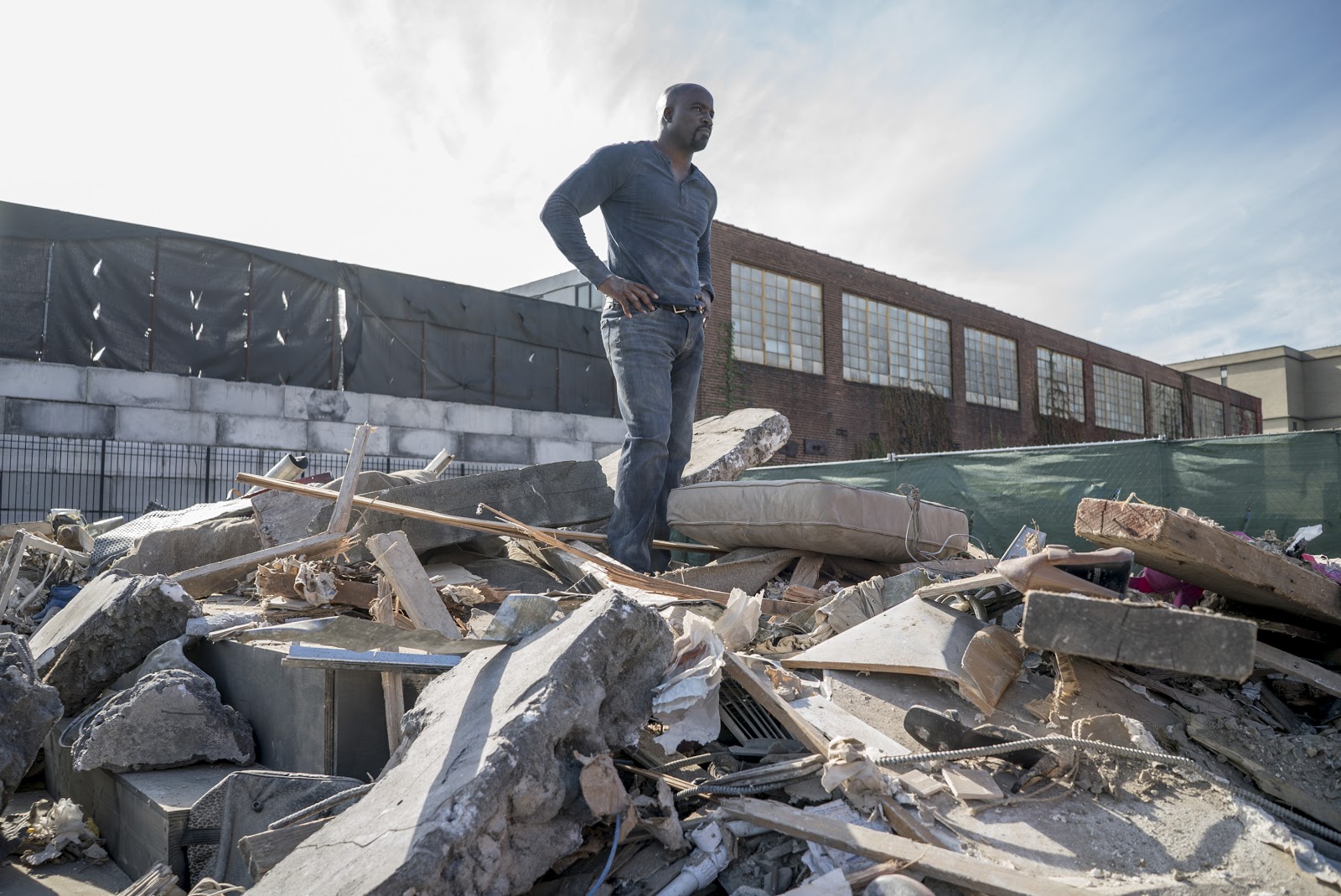
Evan Narcisse: Let’s kick things off by talking about what your concerns and expectations were in the long hype cycle leading up to last Friday? My biggest concern was that the series would hew too much to a standard-issue superhero template. But I liked how they were open about people knowing about Luke’s powers from jump, and how they waited until we were invested to tell the origin. I also felt like they had an impossible challenge trying to encompass as many blacknesses as they could.
Cheryl Lynn Eaton: I feel like even those of us who aren’t fluent in “comic book” are fluent in “superhero.” So that gives Marvel a little breathing room. We’ve been through so many standard origin stories that things can be changed to speed things along. To make for a speedier transition into meatier history.
Jamie Broadnax: I liked that the origin story didn’t start as quickly like it did for Matt Murdock in Daredevil. Unlike Matt, Luke is a character we were already invested in since Jessica Jones, so to learn more about what is happening during his contemporary day adventures still holds interest for fans. In fact, it likely would do so more than to jump in so quickly to an origin story. I don’t think encompassing Blackness was so challenging considering they had a great showrunner at the helm who knew exactly what kind of narrative fits Luke Cage.
Cheryl: I don’t think you have to encompass so many different facets of blackness in one project either. I would rather have multiple projects over a “sample platter.”
David Brothers: For me, I didn’t really come in with any expectations. The Marvel stuff stopped being my bag a while back, so I probably wouldn’t have checked it out if you hadn’t told me to, Evan. I didn’t see Daredevil or Jessica Jones, so it was a clean slate for me. So by the time I had a chance to kind of think about how I’d feel about it, it already had a cosign I trusted, so I came in with my eyes and mind open. It was sort of a, “OK, what’s this gonna be like?” for me more than anything else. I liked that it started with the powers and status quo already established, too, though.
Cheryl: I know that while I enjoyed the project, I was surprised that the blackness I was expecting wasn’t the blackness I received.
Evan: Cheryl, I agree with multiple projects. The “only one” model is way tired in genre fiction. Right away, the first episode hit me with rhythms and dialogue that had black cultural energy. The creators were basically saying, “we ain’t explaining shit or diluting anything. Keep up or get left behind.” So, what did you want and what did you get?
David: That’s what hooked me, too — they opened on a basketball conversation with two kids playing NBA 2K in the background, which are basically exactly up my alley, and then episode two had the crime fiction conversation and I was trapped. They aren’t trying to be universal so much as depict a certain experience (or handful of experiences) well.
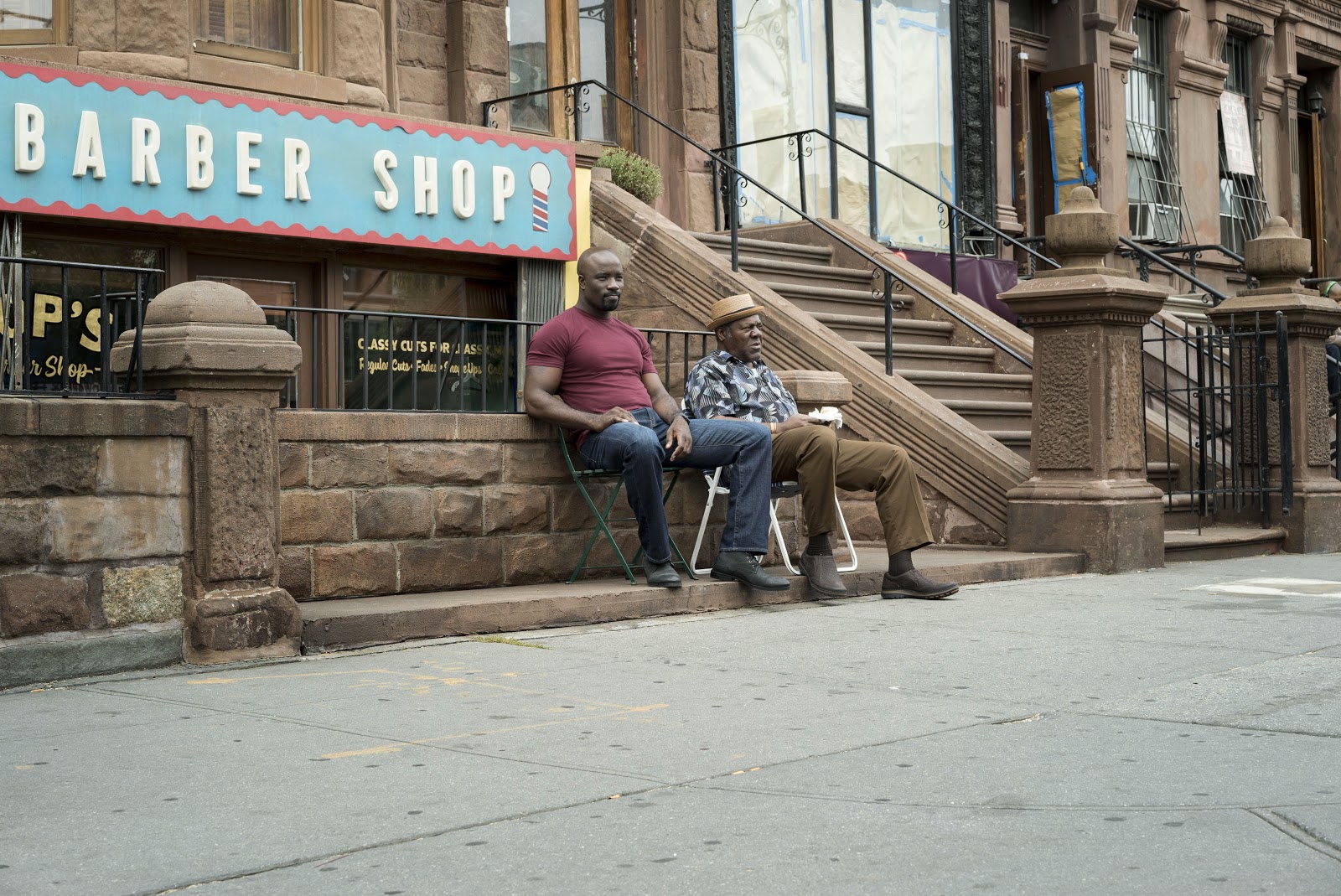
Cheryl: To be honest, Evan, I was expecting Dipset-Era Cage. I was expecting the men I grew up with in New York and New Jersey. And that’s not Luke. Now I want to be clear that Luke is BLACK. And acts BLACK. Because there are multiple ways to express blackness.
But, to me, Luke came across as stiff. Like a military dude. And he stood out in that barbershop. I suppose the same way I now stand out around my Southern relatives.
Jamie: I liked that, too, David. This was a show that was steeped in Black culture, from references to hair (Misty’s comments to Mariah about her “edges”) to hip-hop songs (Luke meeting Method Man and being a total fanboy) to social injustice issues like police brutality. They even referenced gentrification in Harlem. This is real life and so many aspects of this show could easily be reflected in real-life events. As a person of colour and a comic book fan, I appreciated the synergy of both fact and fiction.
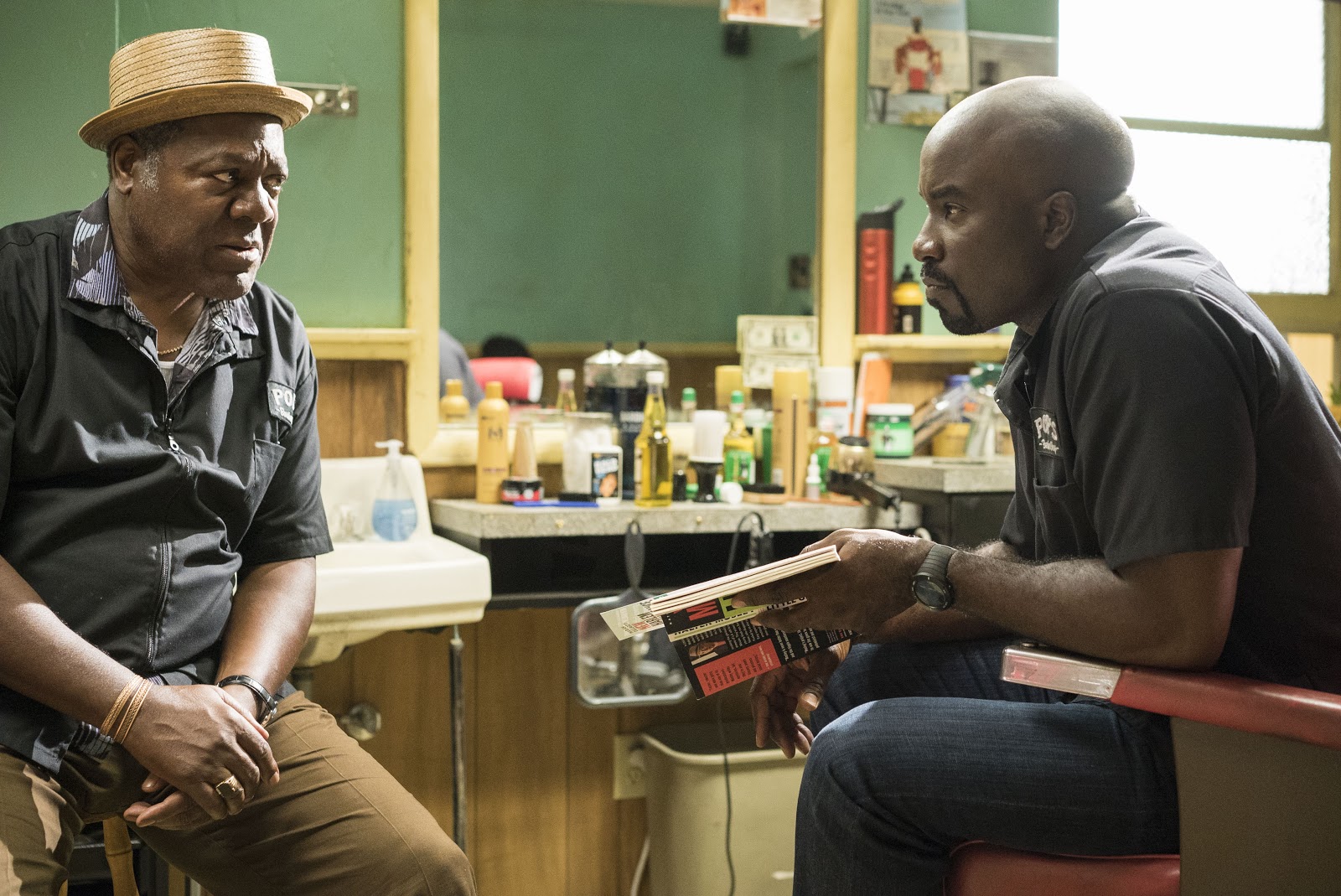
Cheryl: When Pop said, “Where you really from?” I knew that answer was not going to be New York. And I wanted it to be.
Jamie: I agree, Cheryl. He is different. I think that’s what I like about Luke, he stands out from the other Black men in his neighbourhood.
David: I really enjoyed that moment, ’cause I’m from Georgia and always liked that Luke had roots elsewhere. Plus the whole Great Migration thing — black people are from everywhere, but in a lot of ways, a lot of black folks are maybe two degrees from the South, too.
Jamie: True.
Cheryl: I know I am.
Jamie: Do you think Luke is an amalgam of Black people from different regions?
Evan: Piggybacking on Cheryl’s feelings, I liked how Luke’s stiffness and outsider status was woven into the show’s plot. I lived in Harlem for five years — right around the corner from Pop’s barbershop — and I loved it so much for being around all that history and culture and energy. But I wasn’t ‘of’ Harlem. That too is real. All ‘blacknesses’ aren’t necessarily simpatico.
Cheryl: But it was important to me not to just show that a black man could be a hero, but that a black man from Harlem could be one. Or one from the streets.
Evan: Yeah, this Luke isn’t from the streets. He’s a lot more bougie than his comic-book counterpart.
Jamie: True.
Evan: …which is fine!
Cheryl: He’s Black Lightning cosplaying as Power Man.
Evan: dang.
Cheryl: (Just to add I adore both characters. No playing one company against the other here.)
David: Weirdly, I feel like he’s kinda on target for the comics, too. Luke sits in that Generic Black Dude range, like Bishop and War Machine and pretty much everyone but Night Thrasher and Rage — he’s got an edge and he’s angry but it’s justified and he’s like somebody’s older uncle holding court when he gets up a head of steam. Superheroes are sorta inherently conservative, to an extent, and you can see it in Luke on the page or screen.
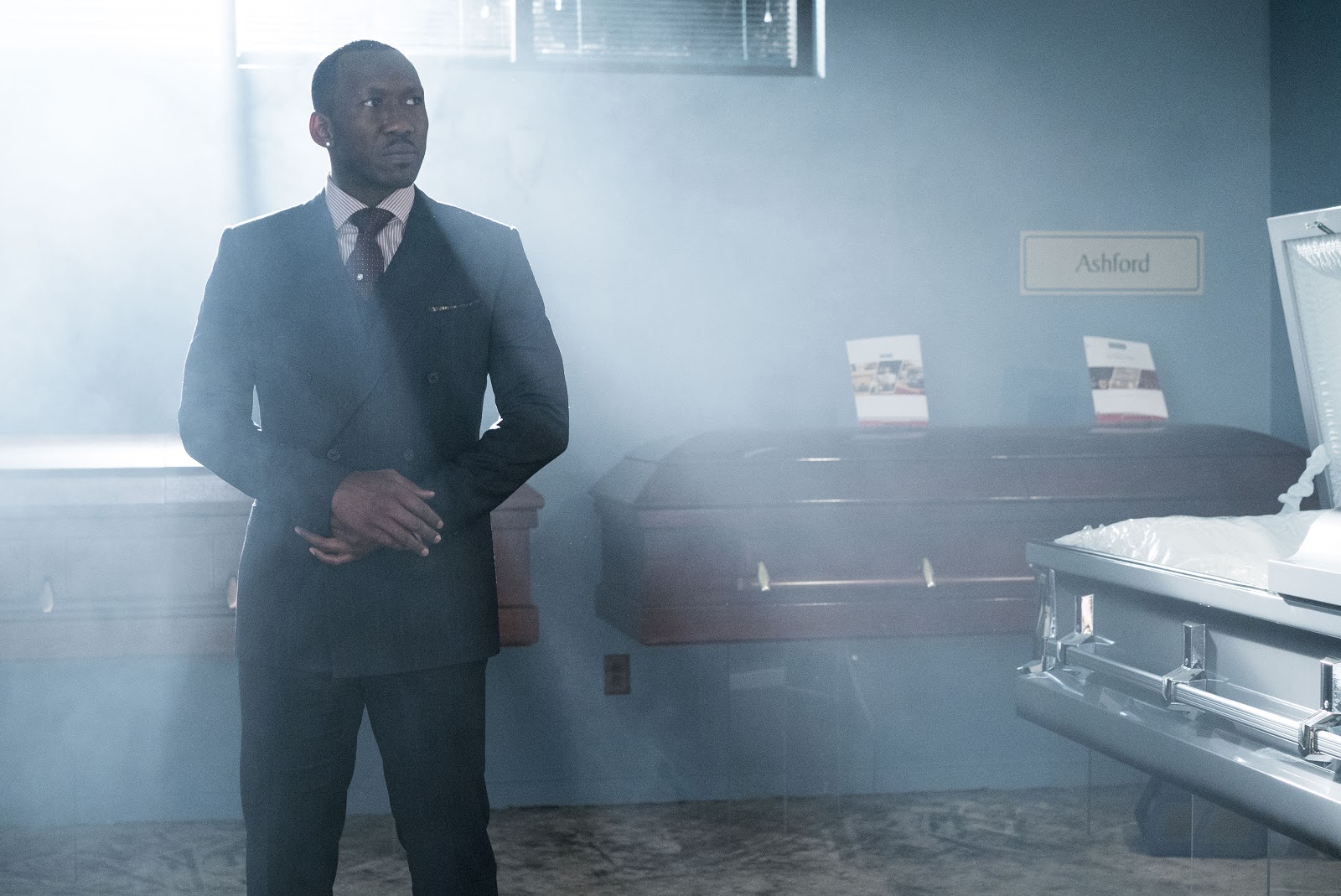
Jamie: If I’m not mistaken this character is based on the Alias run. Not the older comics. Which accounts for the differences as well.
Evan: Yeah, David, there’s been some convos about whether the show is about respectability politics. And my response to that is that the genre conventions of superhero shit lean that way anyway. Superheroes tend to protect the status quo in the aggregate, even if they fight the worst parts of it.
Jamie: I’m confused about the respectability politics conversation. Was it the one scene about the N-word that sparked this discussion about respectability?
David: It was that, and also all the “Ooh, a black man with a job” thing, I think.
Jamie: Hmm. I didn’t pick up on any of that
Cheryl: I do want to say that I feel like [show creator/executive producer] Cheo [Hodari Coker] brought blackness to this project and “Marvelness” to this project without compromising one or the other. And that should be commended — and rewarded with further projects.
Evan: I think it was a ballsy and real-as-fuck move to use the n-word in the show. And it makes sense that this version of Cage would feel that way about the word. (We can curse here if you want.)
David: Swear jar!
Cheryl: But… let’s be real, how many of our cousins and aunts have said that exact same thing?
Evan: Plenty!
Jamie: I respect the fact that Cheo put it out there that Black folks are not a monolith and not all of us feel the same way about the N-word.
Cheryl: Definitely not. So many families have different unspoken rules about it. I don’t use it because it’s not “ladylike” and yet I won’t blink when it’s every fifth word from a man in my family.
Jamie: Same here, Cheryl. I don’t use it. But it doesn’t bug me when others do.
David: I use it, but not really around white people. Everybody’s relationship with it is complex, and I think Luke’s speech is balanced (or countered, or whatever) with Cottonmouth’s in the episode prior.
Evan: Tangentially related, the biggest surprise for me about the show overall is how much of a callback to blaxploitation it is. Like, it takes a character that was created as a thirsty fad cash-in and revisits that sensibility with black folks making creative decisions. Not the first time that’s happened since the 1970s in mainstream culture but still notable for a big superhero adaptation.
Jamie: I noticed Luke never used the N-word in Hell’s Kitchen. Which is interesting.
David: There’s that Talib Kweli line on a David Banner song, “If crackers gon’ be fearing niggas, then that’s what the fuck I have to be,” which is a really fascinating (to me) look at the word and its context.
Cheryl: I have to admit, it’d be nice to have a hero who represented the other side of the debate.
David: Night Thrasher, coming to Netflix 2020!
Evan: Yeah, Cheryl, like the Blood Syndicate from Milestone. They gave no fucks. At all.
Cheryl: I always thought that would be Luke. But maybe that character isn’t going to come from Marvel or DC.
Jamie: I would have been disappointed if the show didn’t do a callback to blaxploitation. It’s within the fabric of our history.
David: What aspects do you think were the most effective callbacks? Versus the sort of generalized “black culture” thing that permeates the series?
Jamie: The music, for one! Stylistics, Delfonics, etc. I was pleased.
Cheryl: It’s funny, because I assumed Luke was codeswitching in Jessica Jones. So I was waiting for that switch-up and it never happened.
David: Man, I didn’t even know I was into the Delfonics like that until that episode happened and I perked up!
Evan: Great point, Cheryl!
Jamie: I expect to see more codeswitching in The Defenders Cheryl
Evan: You know who was codeswitching? Turk!
Jamie: Ha, he was!
Evan: He has hella swagger uptown!
Cheryl: Callbacks? The streets themselves. And the barbershop. With the big television and the video games playing. Man, the barbershop was the first place I encountered Grand Theft Auto!
David: I’m an old Frank Miller head and seeing Turk was great, from the chess-playing to the snitching to his absurd exit from the show.
Jamie: Harlem’s Paradise is a major callback. Lots of nightclubs in blaxploitation films.
Cheryl: The only way Turk could have been better is if he had a Newport hanging from the side of his mouth in every scene.
Evan: hahahahahahahaha
David: Does anyone smoke in this show?
Jamie: LoL
Evan: I feel like some of the thugs did?
Jamie: I didn’t notice any.
Cheryl: Me either. Hmmm. That’s interesting.
Evan: But, to really answer David, it was the histrionic machismo that channeled blaxploitation for me. Villains and heroes always puff out their chests in superhero adaptations but there’s a very specific kind of bluster that happened in Superfly, Truck Turner and the like that I saw invoked here. Episode four felt like an homage to the Penitentiary movies. and the Stokes family’s underworld dynasty pinged off that sensibility for me, too.
Cheryl: Stryker was basically the ’70s walking.
Evan: YUP. I was like, “did they clone Tony Todd?”
Jamie: LoL
Cheryl: I feel like this show was trying to bridge two distinct eras of Blaxploitation — the Shaft era and the Belly era. And I think it did a pretty good job of it. I mean, who didn’t see the New York Undercover running up and through the show?
Evan: Man, it felt like a lost cousin to New York Undercover.
Jamie: Cheo thought of Belly when he pitched the show to Jeph Loeb, so you’re on the nose, Cheryl.
Evan: OK, now we have to talk about Misty Knight. Sometimes, it felt like this was more about her than Luke. And I loved that.
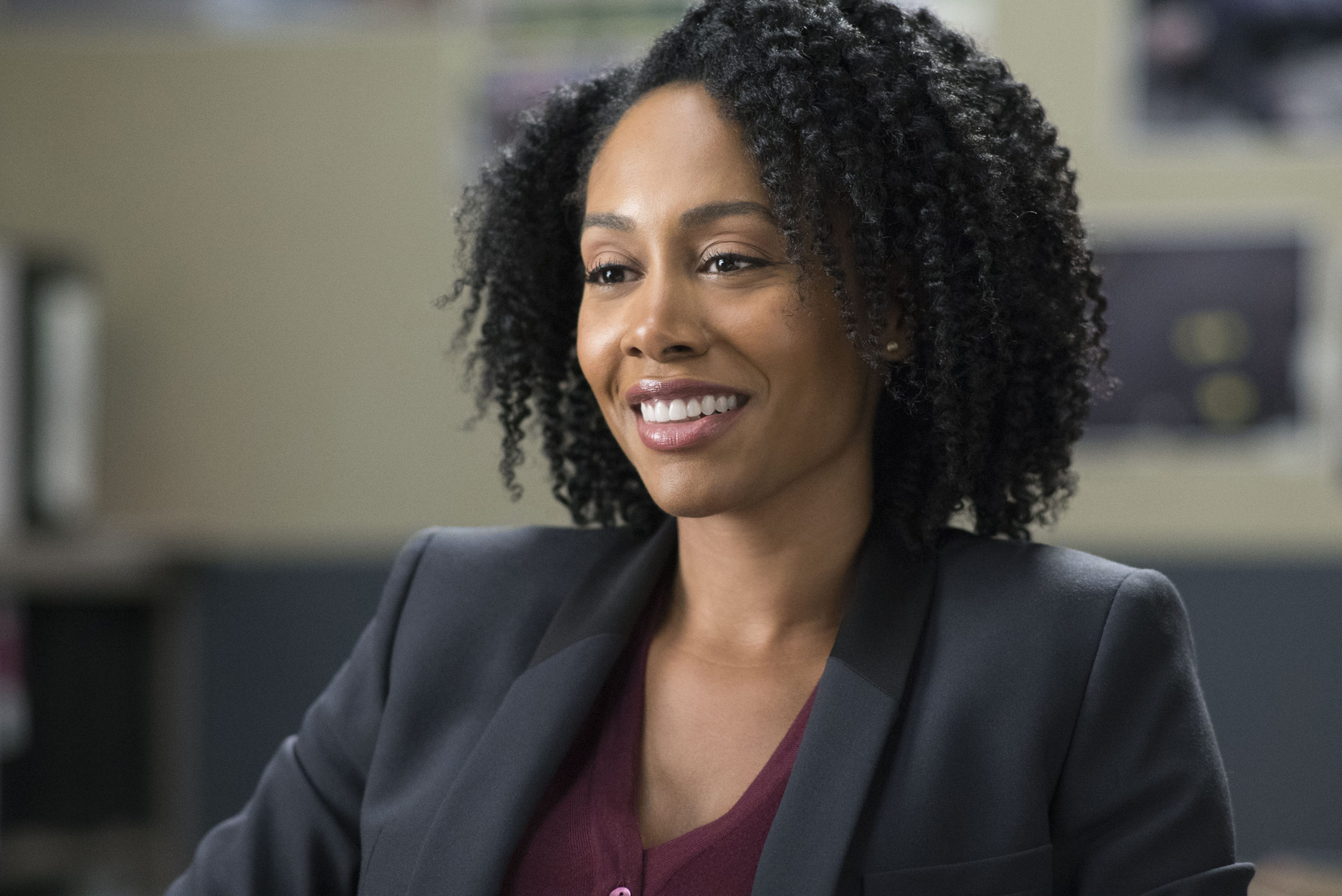
Jamie: I’m still amazed how much Misty Knight was depicted on this show. I wasn’t expecting that.
Cheryl: I feel some type of way about Misty.
Jamie: Uh-oh…
David: I’m gonna defer to Cheryl. I know she’s Misty’s #1 knight.
Evan: **braces self because he knows what’s coming**
Cheryl: Missick was incredible. Amazing. And there were so many black women who were strong and capable and stellar in this show, but… I’m frustrated by the way Misty’s history was altered — erased — to bolster Luke’s. Eliminating her romantic relationship with Danny [Rand] troubled me. Especially since she doesn’t seem to be riding off into the sunset with Luke.
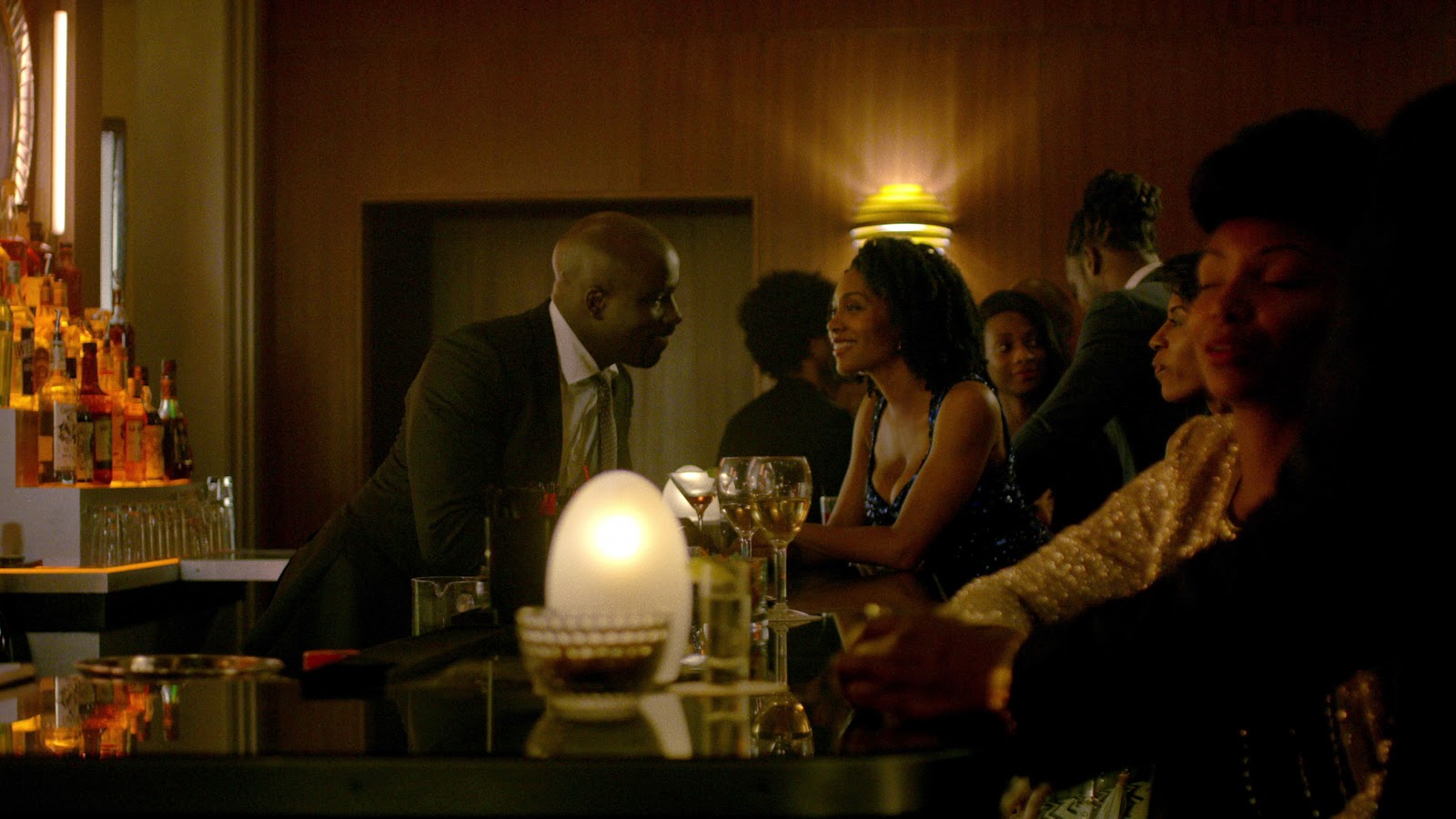
David: In the comics, was she with Danny while she was a cop?
Evan: Pretty sure that was after she went P.I.
Cheryl: Danny first tested the waters back when Stilleto and Discus busted up the shindig to celebrate Luke clearing his name. Now I’m mad at myself for donating all my old comics or I could look that up…
Jamie: I agree with the canon concerns. The Netflix Marvel Danny Rand seems such an odd fit for Simone Missick romantically. Curious to see if these two actors will have any chemistry.
David: The Netflix Rand looks super corny to me. I can’t even imagine it.
Evan: Hahahahahaha! “You got no game, son.”
Jamie: Plus, Misty is not even going to be in Iron Fist. Seems this was purposeful on Marvel’s part.
David: I agree 100% on Missick killing it in the role. I also liked that she was from the neighbourhood she protected. That’s always a nice touch.
Cheryl: I think what concerns me is that, though we’ve had women of colour with major roles in the Marvel Universe before, Misty is the first to have brown skin. And would have been the first to be a major love interest who was cherished and put on a pedestal. Now she’s a notch in Luke’s belt. An afterthought. I’m going to need Sam Wilson to show up with hearts and stars in his eyes to make up for that.
Evan: Hahahaha. “I can treat you betterrrr than he can…”
David: It seems like a mutual afterthought to me. There’s not even a whiff of interest from her after the first episode.
Cheryl: Because if not? It’s not sending a good message to women who look a certain way. And I am not here for “The Colorstruck Adventures of Luke Cage.”
Jamie: I don’t know. I really liked that this show focused on Misty’s detective skills and not her personal romantic life. We’ll get that when she gets her own show, wink wink.
Cheryl: If she does not get a show with Colleen, I am going to be so through!
Jamie: I’m SO ready.
Cheryl: But we get so much of the “strong independent woman who don’t need no man.” I want to see women — brown-skinned, 4c [hair], etc. — who are loved, cherished, treated tenderly. Especially when other women who look differently get to enjoy a wide array of roles.
Jamie: I didn’t get that. Especially during the interrogation scene. Misty opened up quite well. We saw a wounded Misty for the first time and she was pretty guarded throughout the series.
Cheryl: It’s about the way she is treated by others to me. Not about showing Misty as weak, but about coming first in a man’s life. If that makes sense?
Jamie: And didn’t Misty have a casual sexual relationship with Luke in the comics?
Cheryl: Not that I know of. But I did dip from the comics when Danny died. Death is a vacation now in comics but it wasn’t like that back then.
Evan: I don’t think they Luke and Misty ever hooked up. This exchange highlights how, overall, the women on the show are almost all more interesting than the men. Especially Mariah Dillard.
Jamie: Hmm., I’ll check on that. I thought they were romantically linked. Yes, they really are, Evan.
Cheryl: It’s not just in Luke Cage either. That plays out in the other Marvel shows too.
Evan: The villains on Luke Cage blew me away. Stryker is more of the typical straight-crazy scenery-chewer but Shades and Mariah, especially, inhabited this seductive grey area where you wanted to like or believe in them despite knowing that they were ‘bad.’
David: I was surprised at the Black Mariah mention, because until that moment I hadn’t realised who she was supposed to be. But she’s another real good re-invention of an old character.
I think the highlight of the show for me, from a straight-up fanboy point, was Shades. Me and my writing brother Gavin Jasper are probably the two people who have talked more about Shades & Comanche than anybody who hasn’t even written or drawn the characters (and even then…) and I gotta say that I loved the new take on Shades. They took a character who wore a fake Cyclops visor and was at least 75% joke (being generous here) for years and turned him into one of the illest characters on the show. The “I know something you don’t know menace” and “You know who’s really in control” swagger really worked for me.
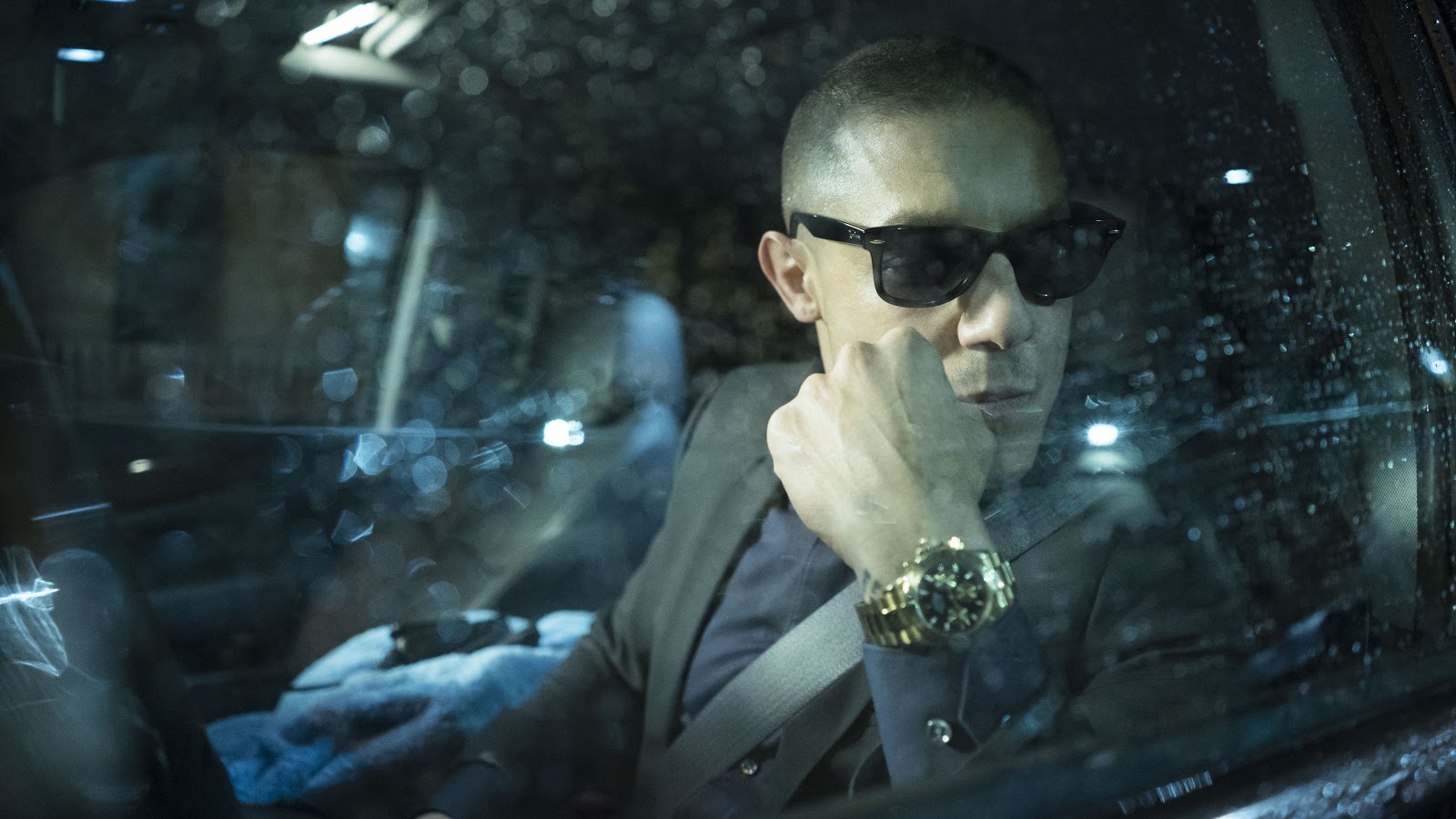
Cheryl: Mariah was amazing. Right up there with Fisk.
Jamie: Mariah is the breakout villain of the show.
Evan: Even better than Fisk, IMO. Because you can’t quite shake the idea that she doesn’t believe at least a little of the uplift rhetoric she uses as cover.
Jamie: Mariah is both an anti-hero and a villain which is something you don’t see in many villains. Because, at the end of the day, Mariah really does care about the neighbourhood.
Evan: She just wants to run it!
Jamie: She does! But she wants Harlem to be in her image!
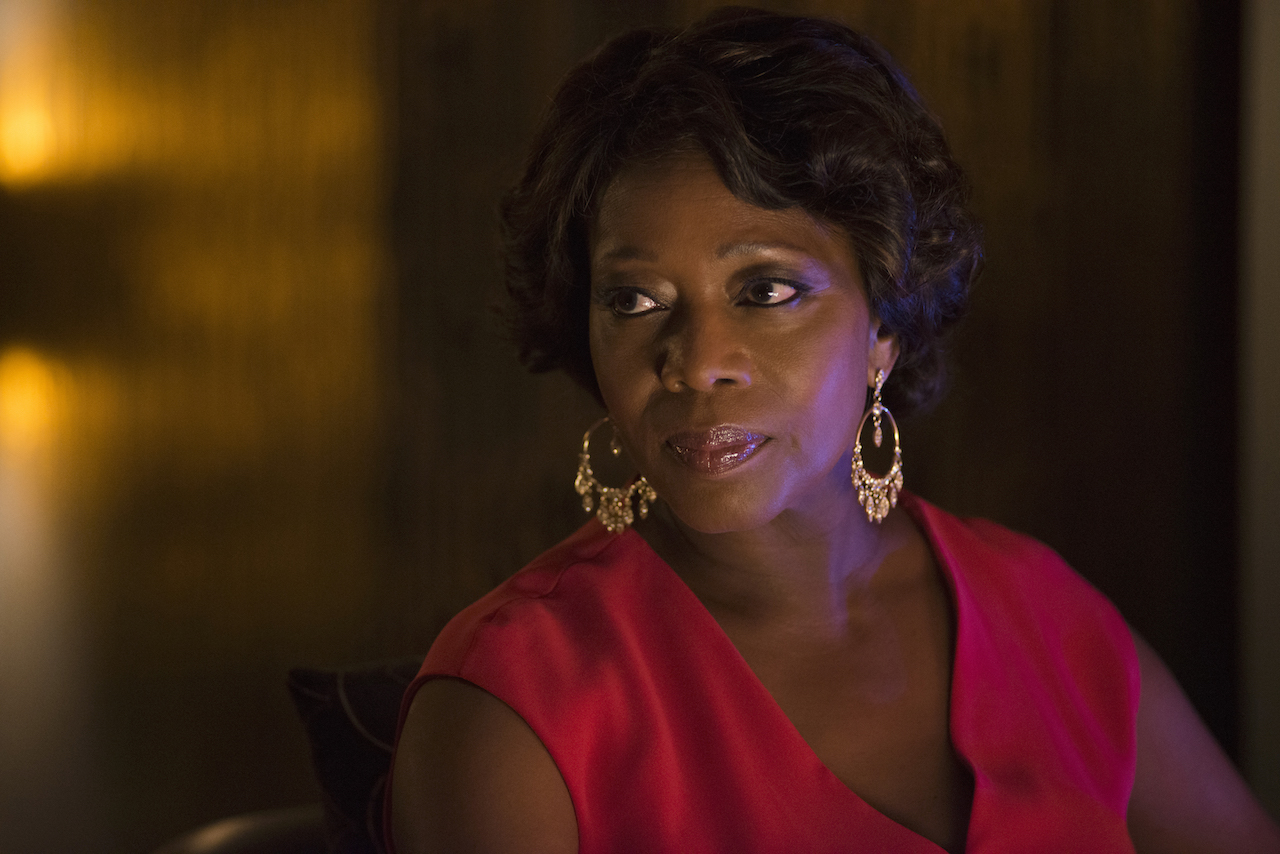
David: This maybe ties into the respectability thing, but how much of this show do you think was intended as or serves as a “message!”? Mariah is using gun-running money and playing the game, so to speak, to try to do good things. Luke has a few speeches about morality and being black in America, and Cottonmouth too. Or is this question just a result of the paucity of black characters forcing them to shoulder more of a burden than white characters? I mean, are they saying something about Mariah, or does Mariah just do Mariah?
Cheryl: I think Mariah is even more terrifying than Fisk because of the fact that she is a wolf in sheep’s clothing. Look at the political power of black women right now, the movements they have established, the importance of the matriarch. Now imagine evil lurking amongst that.
You don’t expect a man like Fisk to do right by you. Your guard is up. It wouldn’t be with Mariah.
David: I meant to say Mariah is using gun money — I forgot drugs don’t factor into this show.
Jamie: Yeah, remember Mama Mabel wasn’t about drugs either.
Evan: Yeah, David, the representation onus is heavy on this show. The Black Lives Matter angle — “Is this Black Lives Matter Superhero?!” — that keeps popping up in mainstream coverage and, while I understand why that is, I kinda just wish the show could live on its own merits.
David: Mama Mabel herself did things to better the community through nefarious means. There’s something really interesting and textured there.
Jamie: I’m ok with the “message!” aspect. [The things it’s touching on] are relevant. And pervasive in contemporary pop culture.
Cheryl: Do you think we’re on the cusp of another era of Blaxploitation? Neo-neo-Blaxploitation?
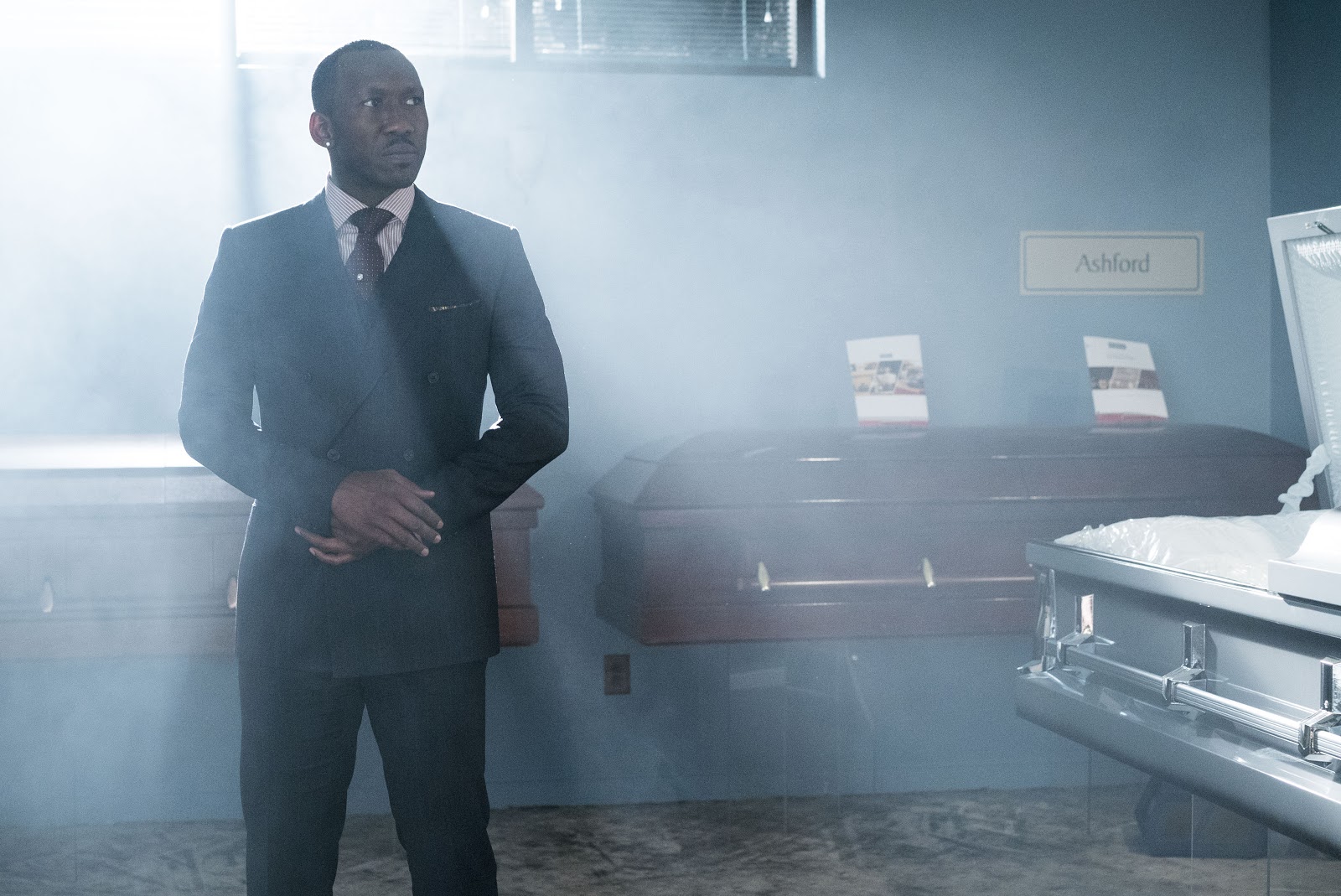
David: Nah. I think we’re on the cusp of genuine inclusivity though. Not so much having a lane as getting to make all the same movies as other folks.
Cheryl: God, I hope so. That would be beautiful.
Jamie: I think we’re on the cusp of non-Black people learning more about the Black experience.
Evan: To tie this all together and wrap things up… the smartest thing for Marvel to do would be to recognise the energy in the air right now and fast-track a Misty Knight show. Luke Cage is a big win for them and to not capitalise on that would be replicating the worst aspects of Marvel’s comic-book publishing history. “Well, we gave y’all one…”
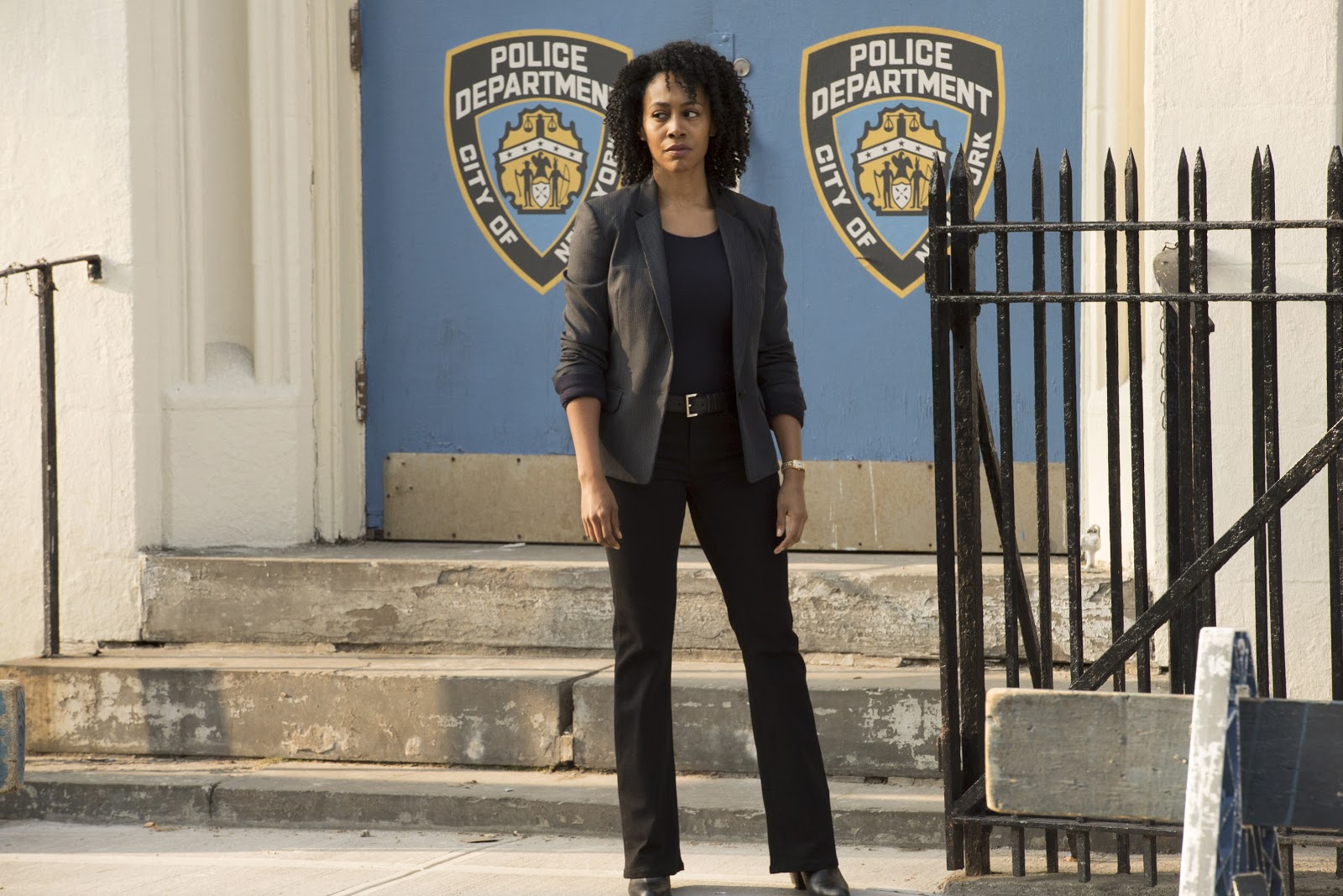
David: That, and trust creators to do their thing. I think a big part of what we’re talking about today is how black men and women write and direct black characters. They even pulled in Clark Johnson, who did the last episodes of The Wire and The Shield, to do the last episode of Cage.
Evan: Meldrick! I go back to Homicide: Life on the Streets with that guy.
Jamie: The fact that Misty Knight is a fan favourite makes me happy. Let’s see her own show and/or a Daughters of the Dragon with Colleen!
Cheryl: I am very pleasantly surprised by… well, the fact that black people are actually being hired, to be quite honest. I’ve seen exceptional talent go overlooked for so long. It’s nice to see a new norm. And I think that stems from the fact that we are no longer looking at the POVs of white people as the default, but as one facet.
Jamie: Right, Cheryl!
Evan: “Just let the people behind the camera work and speak.” I think we can end on that!
Jamie: And that diversity does not equal mediocrity. We can put out some high-quality, award-winning content. Just give us an opportunity.
